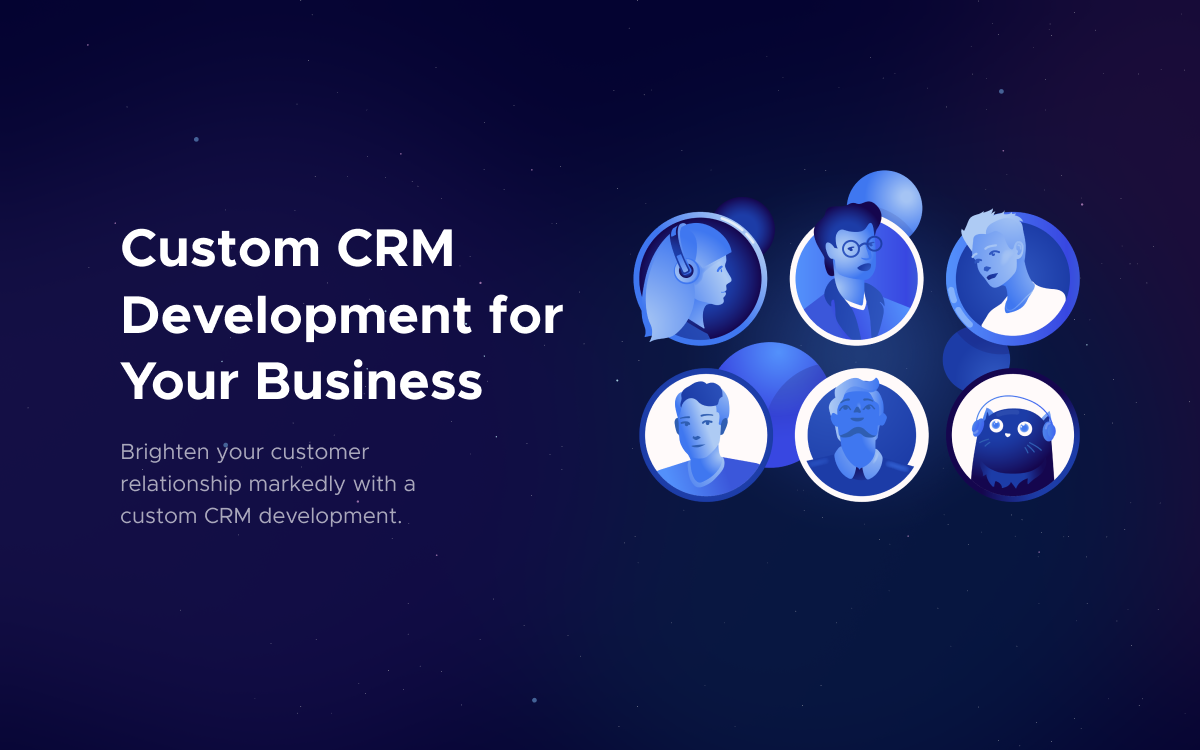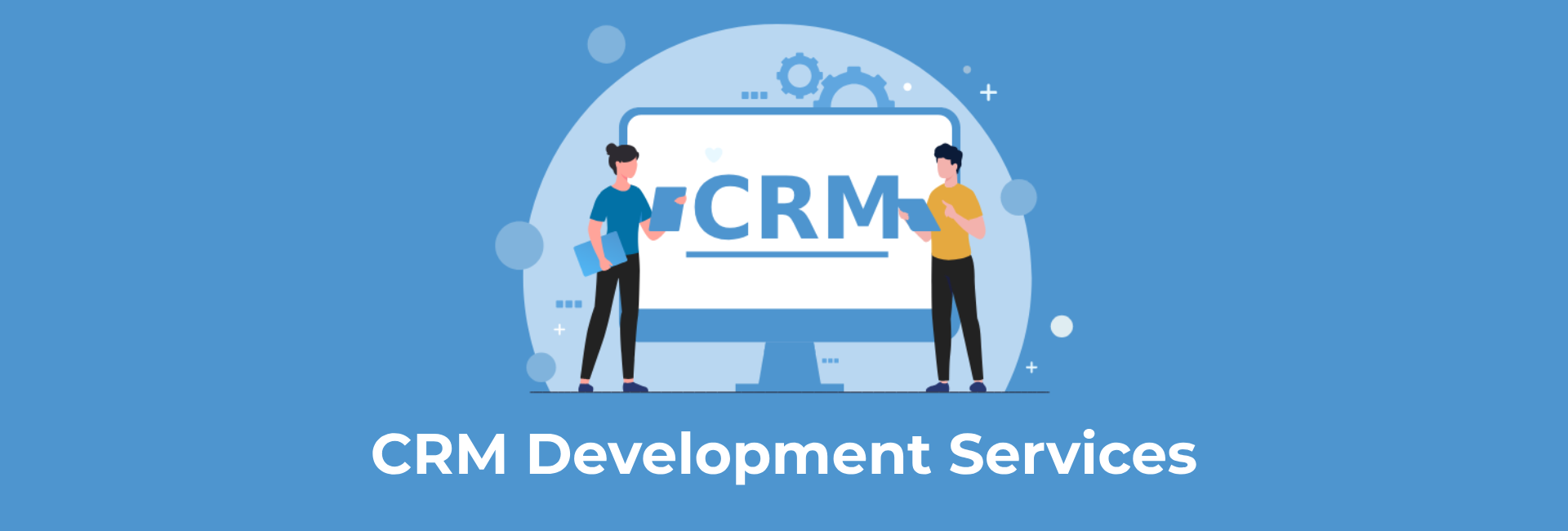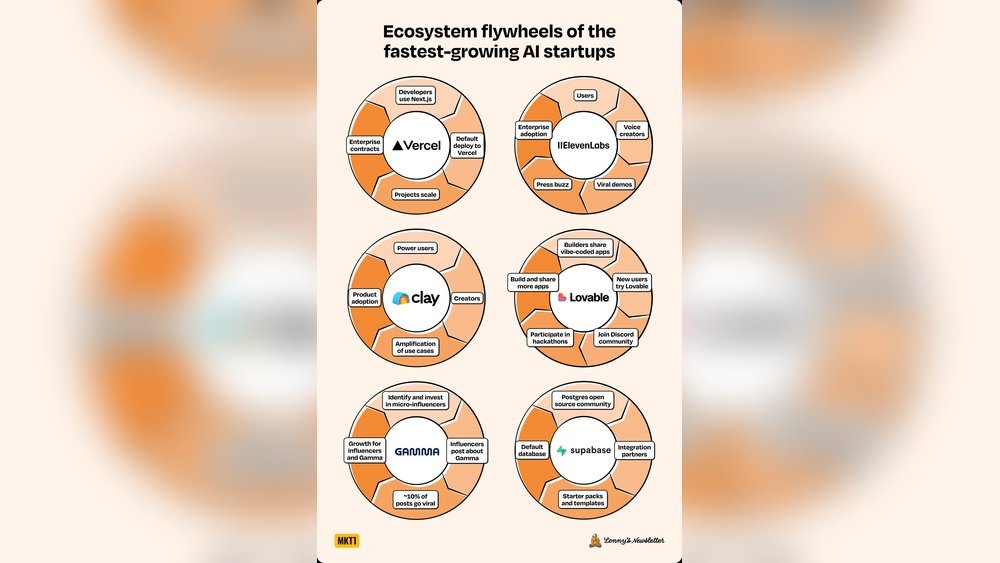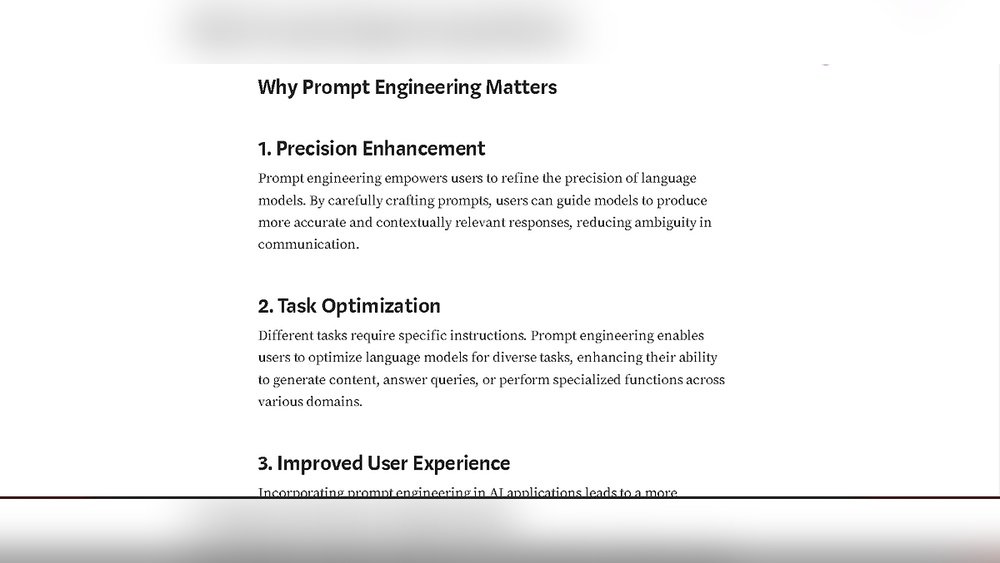Every business needs to manage customer relationships effectively. A custom CRM software development company helps achieve this goal by tailoring solutions to specific needs.
In today’s fast-paced digital world, businesses seek technology that aligns perfectly with their unique operations. Custom CRM software development company offers solutions designed specifically for individual business requirements. They provide the flexibility and scalability needed to grow and adapt in dynamic markets.
These companies work closely with clients to understand their processes and create systems that enhance customer interactions and streamline workflows. By focusing on personalized software, businesses can improve customer satisfaction and operational efficiency. Dive into the world of custom CRM solutions to discover how they can transform your business approach to customer management.

Credit: 5ly.co
Introduction To Custom Crm
Custom CRM software is designed specifically to meet the unique needs of your business. Unlike generic solutions, it adapts to your processes, helping streamline operations and improve customer interactions. If you’ve ever felt that off-the-shelf CRM tools don’t quite fit your business model, you’re not alone. Many companies struggle with rigid systems that require extensive tweaks just to function adequately. Imagine having a CRM that feels like it was tailor-made for your business—because it was.
Why Choose Custom Crm
Choosing custom CRM is about aligning technology with your business goals. It’s not just a tool; it’s an extension of your strategy. A custom CRM grows with your company, allowing you to add features as you need them, rather than being stuck with a one-size-fits-all solution.
Consider your current CRM challenges. Does it support your unique sales process? Are there features you wish it had? Custom CRM development allows you to address these questions directly. It’s about having control over your customer management tools.
Benefits Over Off-the-shelf Solutions
Custom CRM offers flexibility. Off-the-shelf solutions often come with features you don’t need, but lack the ones you do. With a custom CRM, you decide what’s included, ensuring you only pay for what benefits your business.
Integration is seamless with custom CRM. You can ensure compatibility with your existing tools, making transitions smoother and less disruptive. You’ll spend less time troubleshooting and more time focusing on growth.
Custom CRM also enhances customer relationships. With tailored features, you can track interactions in a way that makes sense for your business. This leads to better insights and ultimately, more satisfied customers.
Have you ever wondered how much time you spend adjusting to technology instead of it adjusting to you? A custom CRM could be your answer. It’s not just about managing customer data; it’s about empowering your business to thrive.
Think about the possibilities when your CRM is designed specifically for you. Isn’t it time to consider a solution that understands your needs?
Key Features Of Custom Crm
Custom CRM software can transform the way you manage customer relationships. By tailoring it to your specific business needs, you gain a tool that works exactly as you want it to. But what sets custom CRM apart? Let’s dive into the key features that make it a game-changer for your business.
Tailored Functionality
Imagine a CRM that understands your business like you do. With custom CRM, that’s possible. You decide what features matter most. Need a unique reporting system? It’s yours. Want to automate specific tasks? No problem. This flexibility ensures that every aspect of your CRM aligns perfectly with your processes. A friend once shared how their custom CRM reduced admin time by 40%. That’s the power of tailored functionality.
Scalability And Flexibility
Businesses grow, and your CRM should grow with you. Custom CRM offers scalability, meaning it adapts as your needs evolve. Adding new features or expanding to new markets becomes seamless. Remember when your team doubled overnight? Your CRM won’t flinch. It adjusts, ensuring continued efficiency and effectiveness. Flexibility means you’re not stuck with a one-size-fits-all solution. You can modify it as strategies shift or new opportunities arise.
As you consider custom CRM, think about how these features can elevate your business operations. Are you ready to have a system that evolves with you? How much time could you save with automation tailored to your needs? The possibilities are as vast as your imagination.
Steps In Crm Software Development
Custom CRM software development involves several key steps. Each step is crucial for creating a system that meets business needs. From understanding requirements to designing prototypes, every phase demands attention.
Requirement Analysis
Understanding what the business needs is the first step. Gather information from all stakeholders. Identify the core functions the CRM should perform. Consider the end-user experience and technical needs. This is the foundation of successful CRM development.
Design And Prototyping
Once requirements are clear, design the system architecture. Create wireframes and mockups to visualize the CRM. Prototyping helps in refining ideas and testing functionality. It ensures the final product is user-friendly and efficient.

Credit: www.apptunix.com
Choosing The Right Development Partner
Selecting a custom CRM software development company involves evaluating expertise and reliability. Look for tailored solutions that meet unique business needs. Ensure effective communication and support throughout the development process.
Choosing the right development partner for custom CRM software can be a game-changer for your business. With so many options out there, how do you know which company will truly understand your needs and deliver quality results? The right partner will not only build a system that meets your requirements but also offer insights that enhance your operations. Let’s explore the essential factors to consider when making this crucial decision.
Experience And Expertise
Experience matters, especially when it comes to developing custom CRM software. A company with a rich history in CRM projects will have encountered various challenges and learned how to tackle them effectively. Their expertise means they can anticipate potential roadblocks and offer proactive solutions.
Ask about their industry experience. Do they have a deep understanding of your sector’s unique requirements? This knowledge can significantly impact the outcome of your project.
Portfolio And Case Studies
A robust portfolio is a window into a development company’s capabilities. Reviewing their past work can give you a sense of their style and proficiency. Look for projects similar to yours and evaluate their success.
Case studies provide detailed insights into how the company approaches problem-solving. They often highlight specific challenges and the strategies used to overcome them. Do these examples resonate with your vision for your CRM system?
Choosing a development partner is not just about technical skills. It’s about finding someone who shares your vision and has the tools to bring it to life. Remember, this partnership is an investment in your business’s future. Are you ready to make the right choice?
Cost Considerations
Exploring cost considerations is crucial in custom CRM software development. Budget impacts design, features, and scalability. Balancing quality and expense ensures an effective solution.
When considering custom CRM software development, understanding the costs involved is crucial. Many businesses get overwhelmed by the potential expenses, but with smart planning, you can turn this investment into a strategic advantage. Let’s break down the cost considerations to help you make informed decisions.
Budget Planning
Crafting a budget for custom CRM software is not just about crunching numbers. It’s about aligning your financial resources with your business goals. Start by identifying the essential features your business needs. Do you need a feature-rich CRM, or can you start with a basic version and expand later?
Think about your current revenue and how much you can allocate without straining other operations. An acquaintance of mine once thought they needed every bell and whistle for their CRM. After overspending, they realized many features went unused. Evaluate what truly benefits your operations.
Long-term Investment
Think of your CRM as a long-term investment rather than a short-term expenditure. While initial costs might seem daunting, consider the return on investment (ROI) over time. How will this software improve your customer interactions, sales, and overall efficiency?
A well-designed CRM can grow with your business, adapting to new challenges and opportunities. One of our clients initially hesitated at the upfront costs but later saw significant growth in customer retention and sales. They realized the value surpassed their initial financial outlay.
Have you thought about the maintenance and upgrades that will be needed down the line? Regular updates ensure your CRM remains relevant and efficient, adding to your long-term savings.
By considering these aspects, you not only manage costs effectively but also set your business on a path to sustained success. Are you ready to make the most of your CRM investment?
Implementation And Integration
Custom CRM software development focuses on seamless implementation and integration. Tailored solutions ensure efficient data management and streamlined processes. Enhance business operations with systems designed to fit specific needs.
When you choose a custom CRM software development company, implementation and integration are crucial steps. These processes ensure that your new system works seamlessly with existing tools and data, making your business operations more efficient. The right implementation strategy can transform your CRM into a powerhouse, tailored to fit your unique needs. But how do you make sure everything goes smoothly? Let’s explore some key aspects like data migration and third-party integrations.
Data Migration
Migrating your data into a new CRM system can feel daunting. You might worry about losing important information or facing downtime. However, with a well-planned approach, data migration becomes a straightforward task. Think of it as moving to a new house; you pack your belongings carefully, ensuring nothing gets lost or damaged.
It’s essential to understand what data needs to be transferred. Do you need all historical records, or just the most recent ones? Prioritize the data that will be most useful in your CRM.
Consider employing automated tools to streamline the process. These tools reduce human error and save time. Have you ever thought about how much easier life is with the right tech support? Your CRM data migration should be just as effortless.
Third-party Integrations
A custom CRM isn’t an island; it needs to connect with other software to enhance functionality. Third-party integrations are the bridges that connect your CRM to tools like email marketing platforms, accounting software, or customer support systems.
Think about the tools you already use daily. Wouldn’t it be great if they communicated with your CRM automatically? By integrating third-party applications, you can create a more cohesive workflow.
Choose integrations that align with your business goals. If improving customer service is a priority, consider linking your CRM with a live chat tool. Are there tasks that could be automated or simplified? Integration might be the answer.
Remember, integration is not just about convenience—it’s about maximizing the potential of your CRM. How much more efficient could your team be if everything worked in harmony? The possibilities are endless.
By focusing on effective data migration and thoughtful third-party integrations, you can make the most of your custom CRM software. The goal is a seamless experience that supports your business objectives and enhances productivity. So, are you ready to take your CRM to the next level?
Training And Support
Training and support are vital for effective custom CRM software. They ensure users navigate the system smoothly. Proper training enhances user confidence, while support handles any technical issues. Together, they empower your team to maximize CRM benefits.
User Training Programs
Effective user training programs are crucial for a successful CRM implementation. These programs cover all essential features and functionalities. Users learn through interactive sessions and hands-on exercises. This approach helps them grasp the software quickly. Real-life scenarios in training sessions improve problem-solving skills. Regular updates in training materials keep users informed of new features. Comprehensive training reduces errors and boosts productivity.
Ongoing Technical Support
Ongoing technical support ensures seamless CRM software operation. A dedicated support team is available to resolve issues promptly. Users can contact them via phone, email, or chat. Quick responses minimize downtime and maintain workflow. Support teams offer solutions for technical glitches and software updates. They also assist with troubleshooting and system maintenance. This continuous support builds user trust and satisfaction.
Measuring Success And Roi
Custom CRM software development companies help businesses track success and ROI effectively. Through tailored solutions, they provide insights into customer interactions and data, enhancing strategic decisions. These tools empower firms to optimize operations and boost profitability by understanding client behavior and trends.
Measuring the success and ROI of custom CRM software development is crucial for any business. It’s not just about having a system in place; it’s about understanding its impact. How do you know if your investment is paying off? Let’s dive into the key areas that will help you gauge the effectiveness of your CRM solution.
Performance Metrics
Tracking performance metrics gives you a clear picture of how your CRM is functioning. Consider metrics like user adoption rates, data accuracy, and sales cycle length. These indicators help you understand if the CRM is being used effectively by your team.
Have you noticed a decrease in the time it takes to close deals? This could be a direct result of a well-integrated CRM system. Increased productivity and streamlined processes are strong signs of a successful implementation.
Customer Satisfaction
Customer satisfaction is a vital measure of your CRM’s success. Are your customers happier and more engaged? Look at metrics such as customer retention rates, feedback scores, and response times.
A personal anecdote: After implementing a custom CRM, my team saw a 30% increase in customer satisfaction scores. This was a clear indicator that our system was helping us meet customer needs more efficiently.
Think about this: Are you providing better service and faster resolutions? If yes, your CRM is likely contributing to these positive outcomes.
Engaging with these metrics and insights will not only help you measure success but also guide you in making informed decisions. Are there areas for improvement? How can you enhance your CRM to achieve even greater results? Keep these questions in mind as you evaluate your CRM’s impact.
Future Trends In Crm Software
The landscape of CRM software is continuously evolving. As a business owner or decision-maker, understanding future trends is crucial to staying ahead. These trends offer opportunities to enhance customer engagement and streamline operations. Let’s dive into some key developments shaping the future of CRM software.
AI and Automation
AI is transforming CRM software by automating routine tasks. Imagine a CRM system that predicts customer needs based on past interactions. This is no longer just a dream. AI-driven insights help you personalize customer experiences, boosting satisfaction and loyalty.
Automation also plays a pivotal role. It reduces the time spent on repetitive tasks, allowing your team to focus on more strategic goals. Automated workflows ensure efficiency, improving the overall productivity of your business. How might AI and automation redefine your customer relationships?
Mobile Crm Solutions
Today’s workforce is increasingly mobile. Mobile CRM solutions offer flexibility and accessibility, ensuring your team can access vital information on the go. This means faster responses to customer queries and improved service delivery.
With mobile CRM, geographical barriers shrink, allowing you to expand your reach effortlessly. Whether you’re at a coffee shop or an airport lounge, you have the power to manage customer interactions. Have you considered how mobile CRM could enhance your team’s effectiveness?
Embracing these trends in CRM software can propel your business forward. Stay informed and explore these innovations to keep your company competitive. Are you ready to adapt to the future of CRM software?

Credit: www.w3care.com
Frequently Asked Questions
How Much Does It Cost To Develop A Custom Crm?
Developing a custom CRM typically costs between $10,000 and $100,000. The price depends on features, complexity, and developer rates. Plan your budget accordingly.
What Is Custom Crm Development?
Custom CRM development involves creating a tailored Customer Relationship Management system. It meets specific business needs. This personalized solution enhances customer interactions, streamlines processes, and boosts efficiency. Custom CRMs integrate seamlessly with existing tools and grow with your business. They provide flexibility and scalability for long-term success.
What Is A Custom Software Development Company?
A custom software development company creates tailor-made software solutions to meet specific business needs. They offer personalized design, development, and maintenance services. Their expertise ensures software aligns with unique operational requirements, enhancing efficiency and user experience. These companies help businesses gain a competitive edge through innovative technology solutions.
Can I Develop My Own Crm?
Yes, you can develop your own CRM. It requires programming skills and understanding of business needs. Use tools like PHP, Python, or JavaScript. Ensure scalability, security, and user-friendliness. Custom CRM provides tailored solutions to your specific requirements, enhancing customer relationships and business growth.
Conclusion
Choosing a custom CRM software development company is crucial. It shapes how businesses handle customer relationships. Tailored solutions meet unique needs. They boost efficiency and streamline processes. They provide flexibility to adapt as your business grows. Consider experience and expertise when selecting a partner.
A good company will understand your goals. They’ll create a CRM system that fits perfectly. Investing in custom CRM software can transform customer interactions. It enhances satisfaction and loyalty. Make the right choice for better business results. Your success depends on the tools you use.
Pick wisely for long-term benefits.







2 responses to “Custom CRM Software Development Company: Boost Your Business”
[…] developers to build systems that integrate seamlessly with their existing tools. By investing in CRM software development, businesses can improve efficiency and foster stronger connections with their clients. Discover how […]
[…] Bay showcases inspiring success stories in custom software development. Local companies excel in creating tailored solutions. Businesses thrive by meeting unique needs […]